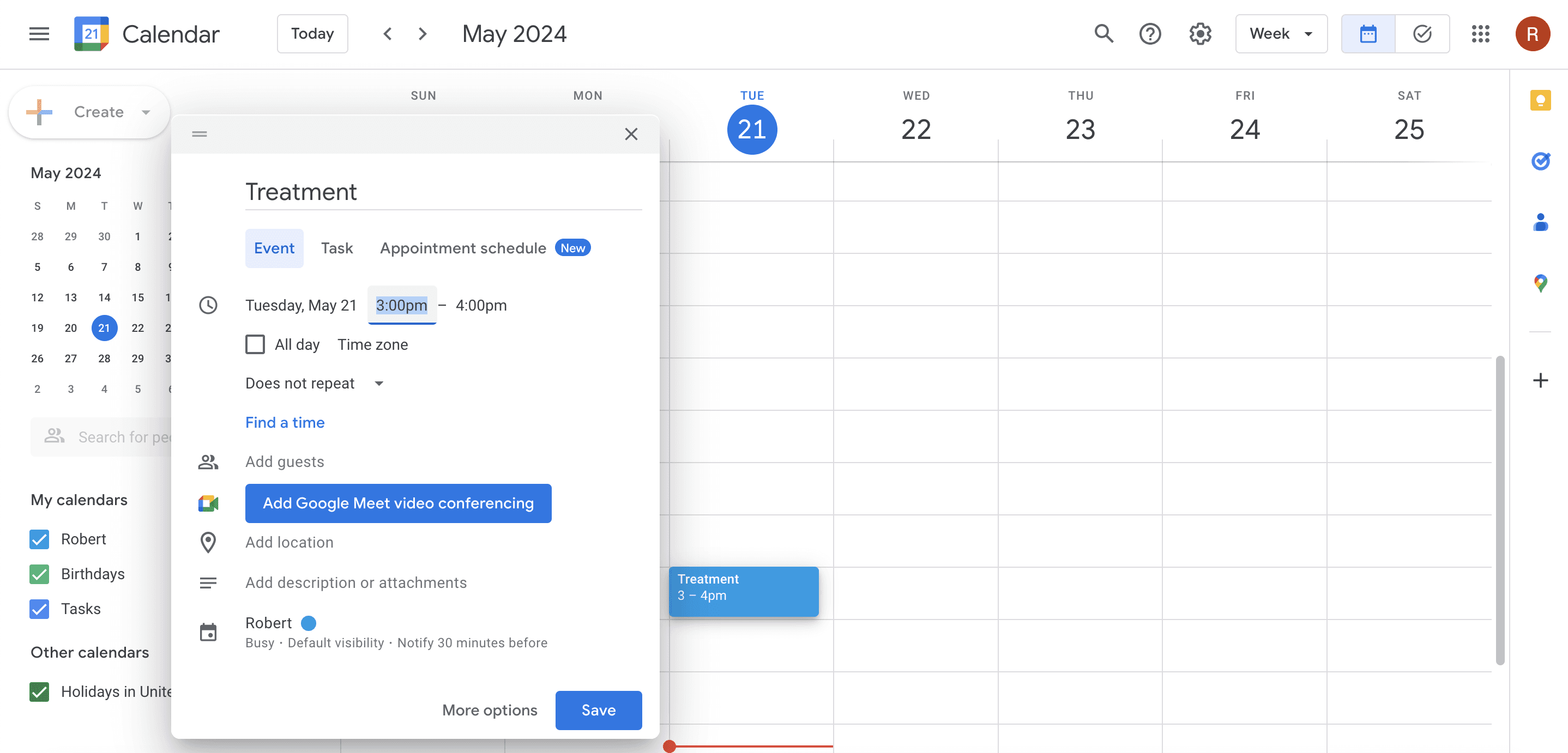Logistics &
Funding
During my cancer battle, I found that important topics like these often went undiscussed in journals and blogs. Here, I'll share key logistical and funding considerations based on my personal experience.
Logistics
Scheduling Tools
Managing treatment schedule can be a handful, especially if you manage the scheduling yourself, or the caregiver has to juggle between a lot of things. In order to keep things organized, I suggest you to use scheduling tools like Google Calendar. Some of its useful features are:
Full week / month schedule view
Custom reminder of upcoming schedules
Google Calendar is free to use, as long as you have a Google account (which I believe you already have)!
You can start by clicking the box of which the treatment is scheduled on, and save it.
You can put things as many as you want and keep track all of the schedules. You will also get a reminder, depending on your setting.


You need to separate bill & medical record document, starting from the first day of the treatment. This practice is very useful for:
Filing insurance claim
Tracking expenses
You can use a simple file organizer like this to get things sorted.

Document Management
People undergoing cancer treatment usually has their immune system compromised; just a minor infection (like flu) can be fatal for them. Caregivers need to be really careful when interacting with the patient, so keep these things in hand, especially when traveling:
Medical face masks
Hand sanitizer
Napkin

General Amenities
Ensure to keep these number in hand in case emergency happens:
Nearest hospital
Ambulance

Emergency
Depending on the patient’s condition, you might need to prepare several equipments, for example:
Wheelchairs
Adjustable bed
Walking cane
etc
Talk with the doctor to see what are the things that the patient needs.

Special Equipments
Funding
Medical expenses, especially for cancer treatment, can be quite high and vary depending on the type and stage of cancer. Here are several ways people typically fund their treatment:
Crowdfunding Platforms: Websites like Kitabisa, GoFundMe or Kickstarter can be used to raise money.
Community Events: Organizing events such as bake sales, charity runs, or benefit concerts can help gather support from your local community.
Social Media: Leveraging social media to share your story might reach a wider audience and generate funds.

Fundraising
Nonprofit Organizations: Many organizations offer grants and financial aid specifically for cancer patients. Research and apply to these programs to see if you qualify for additional support.
Government Assistance: Look into government programs that may provide financial aid or subsidized healthcare for cancer patients.

Grants & Financial Aid
Before starting any kind of treatment:
Verify Coverage: Check if the condition is covered under your current insurance plan.
Understand the Details: Determine if the treatment is fully covered or if you will need to make a copay. This information can help you anticipate any out-of-pocket expenses and plan accordingly.

Insurance
Many people dip into their savings or emergency funds to cover the costs of treatment. It's important to budget and manage these savings to ensure you can handle ongoing and unexpected expenses related to your care.

Personal Savings
